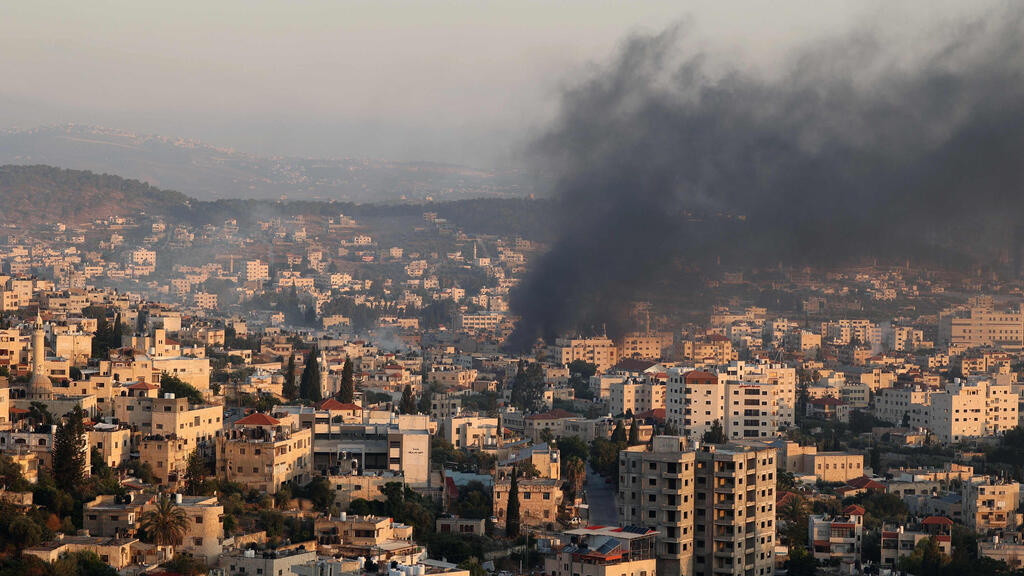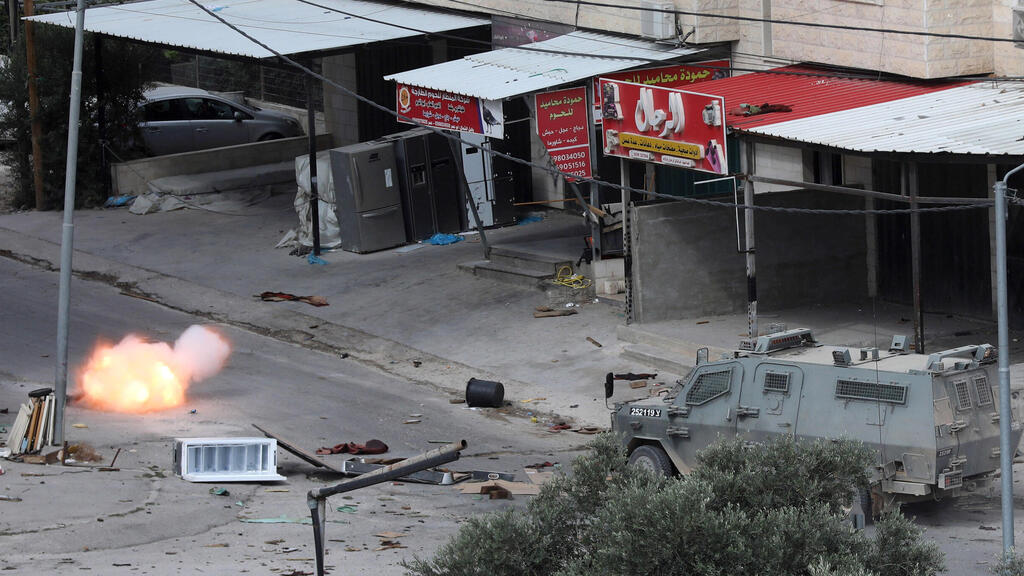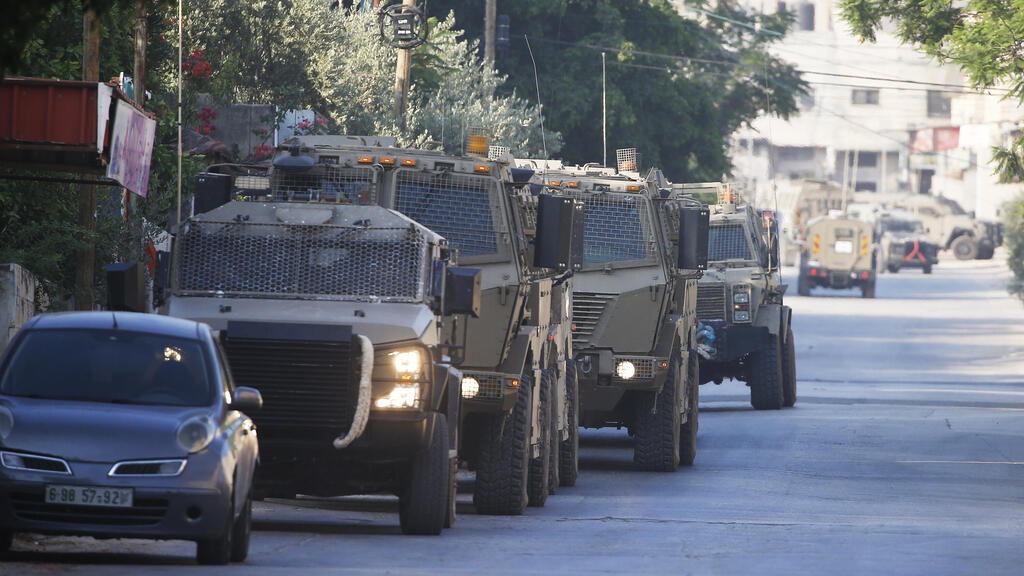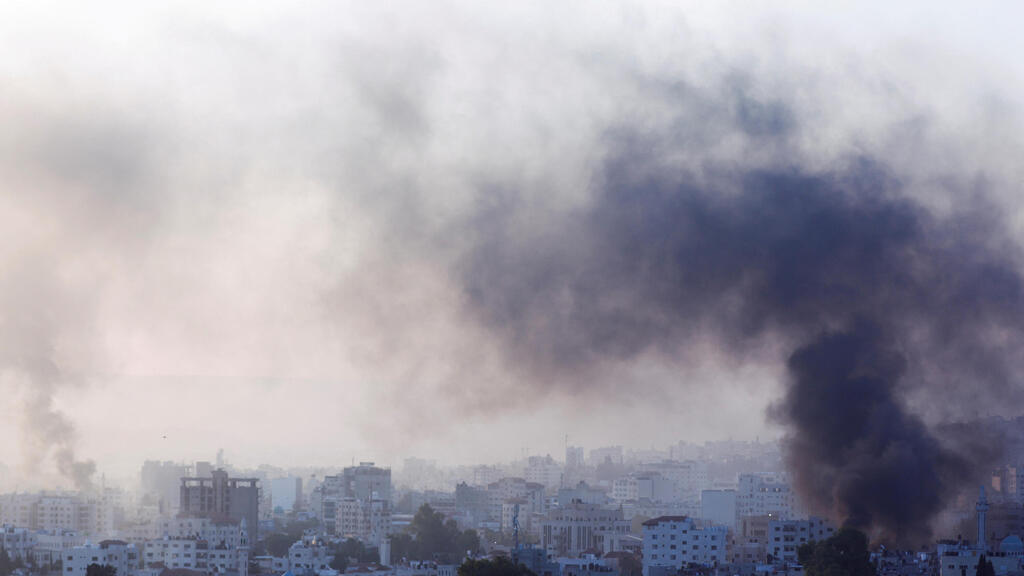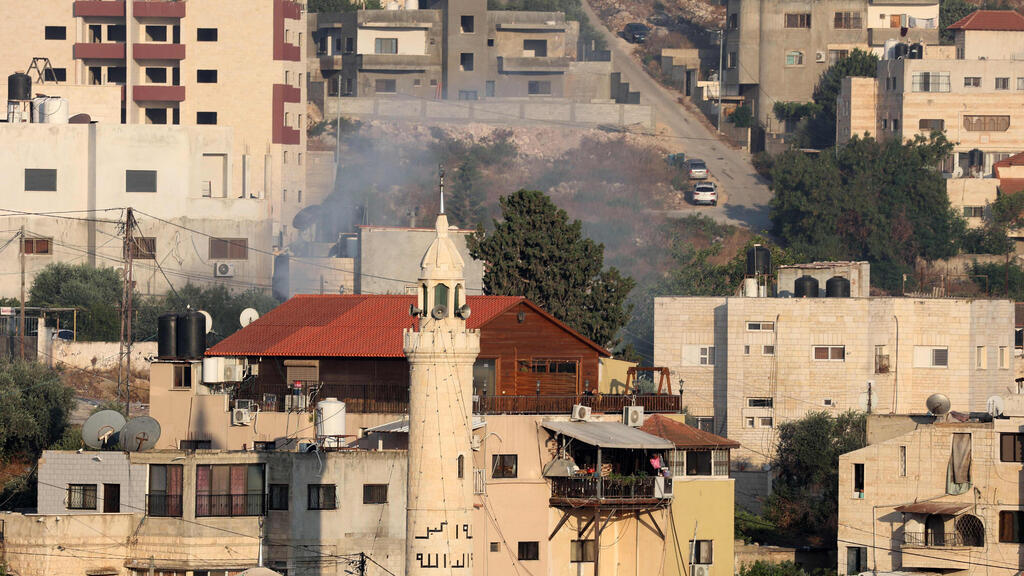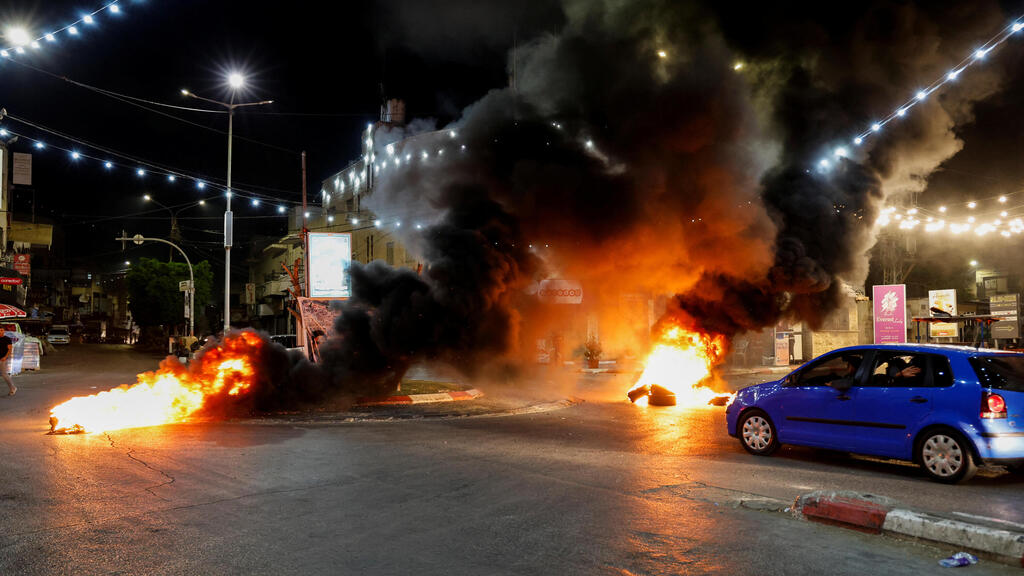Getting your Trinity Audio player ready...
IDF aerial attacks in Jenin
The operation that began early on Monday in Jenin was methodically plotted by the IDF intelligence for a year, with the aim of dealing a blow to the senior members of the newly established Palestinian terrorist organization, the "Jenin Brigades." The operation was expected to last as long as the security forces see fit, depending on their advancements.
More stories:
The operation in Jenin resembles the one conducted in Nablus, against the Lion's Den militant group. But in Nablus, there was one main stronghold used by terrorists, while in Jenin, there are several command centers, belonging to Hamas, the Islamic Jihad, and Fatah, as well as secondary centers.
The main challenge at the moment is locating terrorists who are in hiding and not out in confrontations with troops. That would explain the minimal resistance encountered by forces in the early hours of the operation. The IDF seized a large amount of the explosives early on but troops were bracing for the terrorists to come out of hiding and join the fight. The difficult part of the operation is expected to take place later in the day when some of the terrorists may attempt to escape or confront the forces despite the risks.
The IDF's operation plan
The IDF operates under a strategy known as "stimulation and response," which sets out to provoke as many armed militants as possible to confront the forces or surrender. The forces' intention is to stop them from reaching escape routes and to prevent them from establishing new centers of operation elsewhere in the West Bank.
IDF looks for explosive devices
Early aerial attacks in Jenin
The military plan had been to use the intelligence on the activity of terror groups and identify the optimal moment to act when there was a concentration of terrorists in one location, suitable weather conditions that allow precise aerial operations to minimize the risk of harm to civilians, and after a large force was deployed to the area to participate in the operation.
The operational plans were approved two weeks ago, and when the conditions were in place, Security officials sought and received the approval of Prime Minister Benjamin Netanyahu to act. The Shin Bet and the IDF's intelligence forces ensured Netanyahu that there would be no massive civilian casualties, before receiving permission to proceed.
The terrorists' game plan
The final decision to launch the operation was made after a heavily armored Panther military vehicle came under fire and was targeted by an explosive device in Jenin last month, as well as a rocket launched toward Israel. These events showed Iran had advanced its efforts to turn Jenin into another Gaza. The decision to act came with an understanding in the Prime Minister's Office, that the offensive could be seen by some in Israel as an effort to avert attention from the government's judicial overhaul.
The terrorists have been preparing for a major IDF operation for quite some time. They set up metal barriers and put obstacles for vehicles, in place throughout the alleyways in the refugee camp and hid large explosive charges on the roads that they estimated the forces would use. One of those explosives was set off by IDF troops two weeks ago, leading to an escalation in raids to arrest terror suspects.
IDF troops enter Jenin
Another component in the terrorists' defensive plan was their alert system, using surveillance and reports from residents through social networks. spreading the news as troop movements were observed.
The leak of the operation and the plan of deception:
The operation was leaked and was nearly scrapped. Palestinian journalists had been aware of the IDF's plans for days. However, when the necessary optimal conditions presented themselves military chose to proceed with the offensive and managed to surprise the terrorists in Jenin, by first striking from the air and not entering the camp on the ground.
There are close to one thousand troops currently operating in Jeni n along with bulldozers and other heavy engineering equipment but not tanks. airstrikes continue as troops engage local terrorists in gunfights. the air power provides critical intelligence including real-time information on any efforts by terrorists, to escape. Special forces are also gathering intelligence during the operation and preventing the movement of militants within the camp.





